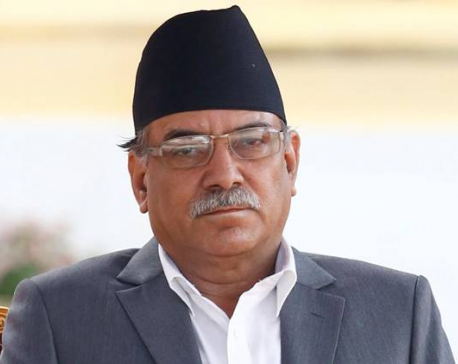
OR
Full membership to China a way out to revive SAARC: Experts
Published On: March 25, 2018 10:21 PM NPT By: Republica | @RepublicaNepal
KATHMANDU, March 26: Foreign policy experts have argued that China should be granted full membership of South Asian Association of Regional Cooperation (SAARC) to give new life to the almost defunct regional body owing to the rivalry between India and Pakistan.
Addressing a two-day regional conference organized by Center for South Asian Studies in the capital, they maintained that it is high time the politicians in South Asia think about accommodating the emerging global power- China- in the South Asian regional framework if this region is to play a meaningful role in new world order in the making.
Professor Moonis Ahmar of Karachi University argued that the existing SAARC structure is not balanced. “The only way to correct this structural imbalance in SAARC is to grant full membership to China. Although Pakistan and Nepal are in favor of making China a full-fledged member of SAARC, the observer status of China has not changed so far due to India's opposition,” he said.
Speaking at the conference organized with the theme South Asia Amidst a New World Order, Ahmar justified his proposal saying that China borders with at least five of the total eight member states of SAARC. Bangladesh is closer to China, while Afghanistan, Pakistan, India, Nepal and Bhutan share border with China.
Former Nepali ambassador Shambhu Ram Simkhada argued that it is time for leaders in South Asian countries to put their thought on how to accommodate the rise of China as benign superpower in the backyard. “China has emerged as a superpower. How do we accommodate is something that needs to be thought upon,” he said.
Foreign policy experts from almost all SAARC member states are participating in the conference that will conclude on Monday. Most of the speakers in the conference had noted the importance of China in SAARC process as the fundamental global political order had witnessed a significant change in the recent years.
Experts argued that the role of US had declined significantly especially after the ascent of President Donald Trump in power, the rise of China as benign superpower and the surge in extremism in different parts of the world. All this have left the world to embark in a new world order, the experts said.
“Three changes have brought tectonic shift in the world order. As the world is heading toward a new direction, South Asia is also in need to embrace a new concept,” said former Major General of Indian Army Dipankar Banerjee.
Arguing that the unipolar world had already changed into a multipolar world, the experts pointed out the need to forge appropriate strategy to reflect this change in the global political structure.
Speaking on the occasion, Executive Director of Regional Center for Strategic Studies, Sri Lanka, Gamini Keerawella argued that although the importance of South Asia had grown significantly with the global power balance gradually shifting from the west to the east, the South Asian region has failed to capitalize on it due to hostile relations persisting between India and Pakistan.
Experts also expressed concerns that SAARC had failed to convene for the past three years. The SAARC Summit proposed by Pakistan could not be held as India announced to boycott it alleging that Pakistan had given refuge to terrorist elements.
You May Like This

PM Dahal to discuss with Ex-PMs, China affairs experts before China visit
KATHMANDU, March 22: As Prime Minister Pushpa Kamal Dahal is preparing to pay an official visit to China on March... Read More...

Leftist poll win has little to do with India, China: Experts
KATHMANDU, Dec 21: As the leftist parties -- CPN-UML and CPN (Maoist Center) -- prepare to form a new government after... Read More...






Just In
- Challenges Confronting the New Coalition
- NRB introduces cautiously flexible measures to address ongoing slowdown in various economic sectors
- Forced Covid-19 cremations: is it too late for redemption?
- NRB to provide collateral-free loans to foreign employment seekers
- NEB to publish Grade 12 results next week
- Body handover begins; Relatives remain dissatisfied with insurance, compensation amount
- NC defers its plan to join Koshi govt
- NRB to review microfinance loan interest rate











Leave A Comment